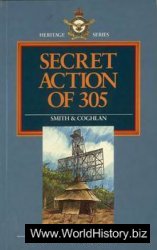The impressment controversy continued more or less unabated until 1807, when the British went too far. The captain of H. M.S. Leopard, prowling off the American coast, after exchanging apparently respectful signals with the American warship U. S.S. Chesapeake, demanded the right to come aboard and search for deserters. When American Captain Barron refused, the British opened fire, killing three Americans and wounding eighteen. Four American seamen were taken off the Chesapeake, and one deserter was hanged. Although the British acknowledged their error, Americans were outraged. Ten days after incident President Jefferson closed all American ports to the Royal Navy, and Congress authorized the construction of 263 gunboats. Jefferson was unwilling to go to war over the issue, but demanded an apology and reparations, which the British duly offered.
In order to avert further confrontations, President Jefferson then ordered Congress to put an end to all foreign trade with the 1807 Embargo Act, which legally ended all trade by American ships overseas in December 1807. Despite the fact that during the ongoing conflict merchants were being harassed by both the British and French, the wartime situation had driven prices of goods up to such an extent that merchants could make a tidy profit even if some of their ships were captured. The Embargo was a strict act; when loopholes appeared, Congress did its best to plug them. Nevertheless, the same Yankee ingenuity that had foiled the British before the revolution was used to get around the embargo. Trade across the Canadian border took up some of the slack. Also, as inter-coastal trade was still legal, some ship owners used that fact as a ploy to get their vessels out of port.
Because of the Embargo's impact on their livelihood, New England revolted against the Embargo, calling it the "dambargo," or the "ograbme" (embargo spelled backwards.) Federalists said the Embargo was like cutting off your head to stop a nosebleed. The New England shipping industry was badly affected and grass began to grow in the streets of towns like New Bedford, Massachusetts. There the matter rested as Jefferson's prepared to turn the presidential office over to his hand-picked successor, Secretary of State James Madison. The Embargo was repealed just as Jefferson left office in March, 1809.
Even after repeal, the Embargo left a bad taste in the mouths of the people of the Northeast; the New York-Canadian border was in a state of insurrection. Jefferson had overestimated the patience of his fellow Americans, and talk of secession, which had begun in 1805 in New England, gained new life. The Embargo also caused much antagonism in England, where textile workers were hurt but had no political clout. In addition, the act was viewed by many British subjects as assisting France. Napoleon did his part to "help" the situation by capturing American ships that had violated the embargo, claiming, "They must be British ships if they are on the seas."
The Embargo did have some unintended fortunate results, however; it drove capital and labor from agriculture or trading into manufacturing, rendering the United States less dependent upon imports of foreign manufactured goods. The lack of trading also relieved the impressment crisis and bought time for America to grow stronger. James Madison responded to criticism of the embargo by arguing that the Embargo was a positive instrument of policy, not a backing down in the face of British pressure. The Act also led to the eventual British repeal their Orders in Council of 1793, which had authorized the seizure of American ships and cargoes.
The end of Jefferson's two terms left the country much larger because of the Louisiana Purchase, but in other respects scarcely better off than in 1800. True, the Republican victory in 1800 had the effect of diffusing some of the political antagonism that characterized the 1790s, but Jefferson proved that he could be just as partisan as his predecessor Adams had been, despite the lofty words of his first inaugural address. Jefferson's ideals were high, but like many other presidents and rulers before and after, he found it difficult to live up to those ideals once in power. Jefferson did not want to be remembered on his gravestone for anything he accomplished during his eight years in the White House, and that is probably an accurate judgment. Jefferson is on Mt. Rushmore, and no doubt deserves to be, but more for his thinking and intellectual leadership than for his governance. In any case, he passed a healthy if somewhat impotent nation along to his successor, his friend James Madison.




 World History
World History









